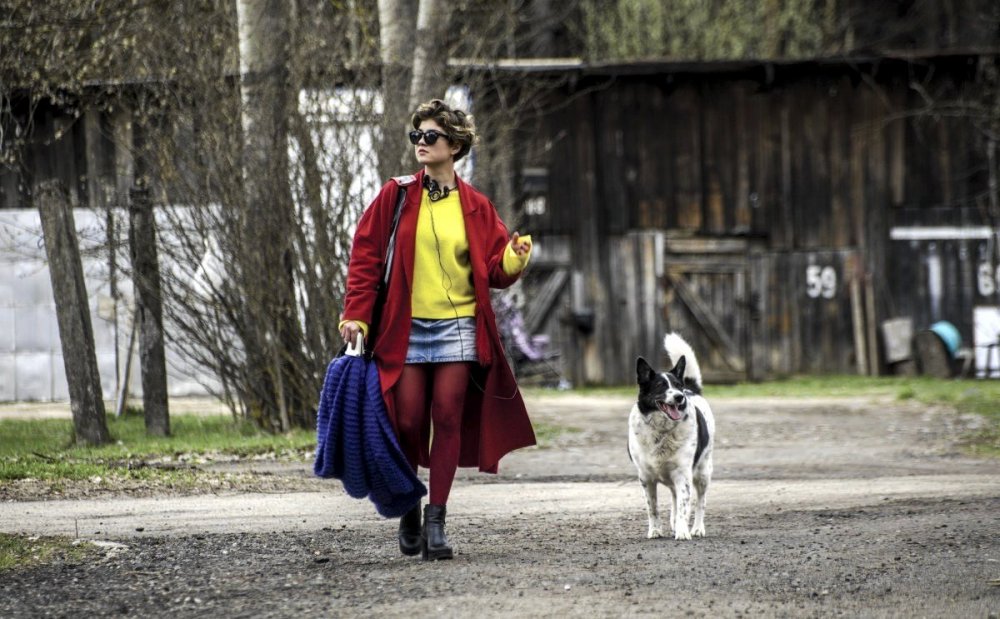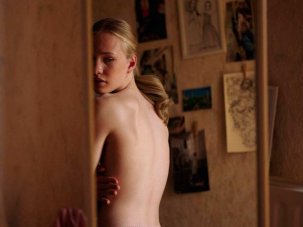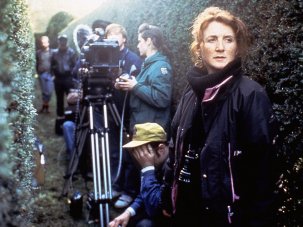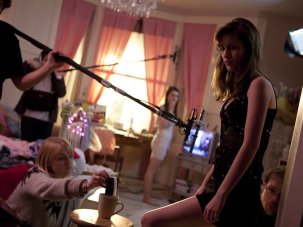The Sutherland Trophy, given to “the most original and imaginative” first feature presented at the London Film Festival, has the longest history of all the prizes awarded at the LFF. While the festival only inaugurated a main competition strand nine years ago, the Sutherland prize was first awarded at the festival’s second edition in 1958. Back then, eligible entries for the prize were any films that had screened at the NFT within the past year. In 1997 those rules were changed and the prize was given only to films screened during the festival itself. Regardless of such changes, this history distinguishes the LFF as a festival that has sought, from its inception, to celebrate and support the work of filmmakers at the beginning of their careers.

The 62nd BFI London Film Festival ran 10-21 October 2018.
This round-up is published in partnership with the festival’s critics’ mentorship programme.
Debut films are not limited to what’s now known as the First Feature Competition, though. Rather, they appear throughout the entirety of the festival’s programme strands, from Laugh to Love, Dare to Documentary. In some cases it can be difficult to determine why a film has been selected for the competition rather than another strand. This year, for example, Harry Wootliff’s thin romantic drama Only You seemed a particularly unworthy recipient of a competition slot. The prize finally went to Lukas Dhont’s polarising film about trans experience, Girl. In a year in which the festival has stressed its commitment to inclusivity – with 38 per cent of the presented films directed by women – it seems appropriate to highlight four of the most interesting first features by female filmmakers here, two drawn from the competition selection and two from elsewhere in the programme.
Despite the heartening strides that the LFF has made towards gender inclusivity, and notwithstanding the awarding of the Best Film prize of this edition to Sudabeh Mortezai’s excellent Joy, 2018 was still a year in which the most high-profile films featuring female characters came from male directors, whether it was Steve McQueen’s Widows, Yorgos Lanthimos’s The Favourite or Alfonso Cuarón’s Roma. The four under-the-radar films highlighted here deserve wider exposure, as they demonstrate the strong commitment of emerging female filmmakers to centralising women’s experiences on screen.
Crystal Swan
(Khrustal) Darya Zhuk, Belarus
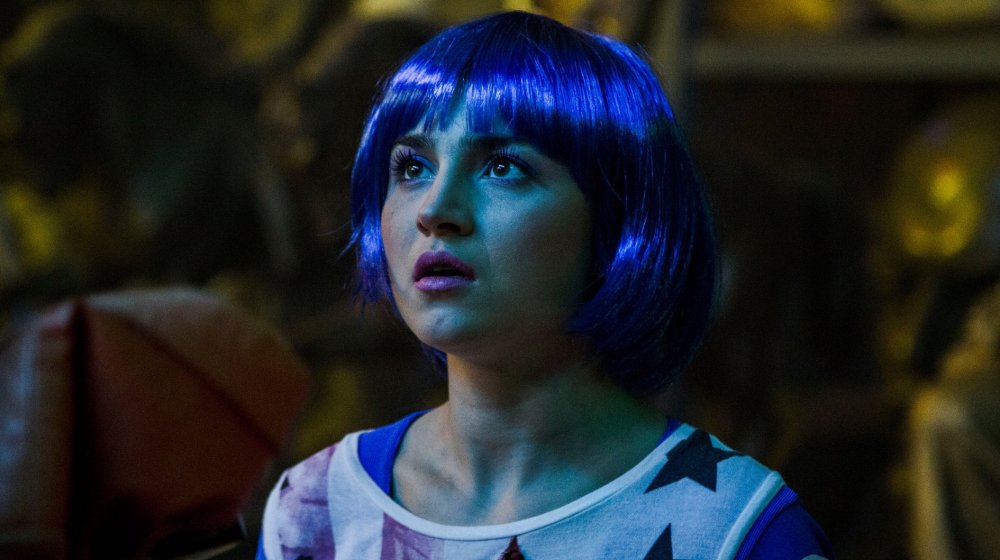
Screening rather controversially in the Laugh section, Darya Zhuk’s Crystal Swan casts the charismatic Alina Nasibullina as Velya, a Belurusian DJ hoping to escape from Minsk to Chicago in the post-Soviet mid-1990s. Velya lies about her employment record by pretending that she holds a job in a town outside of Belarus’s capital and her plans are complicated by a mistake on her forged visa application, which requires her to move temporarily to the small town while she awaits the decision.
In an interview at the festival, Zhuk spoke to me about her love of Jim Jarmusch and Aki Kaurismäki’s films, and it’s possible to discern their influence in Crystal Swan’s absurdist deadpan tone. In addition, a brash wedding sequence also uncannily echoes a similar scene in Sergei Loznitsa’s Donbass (which also screened at LFF this year).
However, benefitting from a smart, wry screenplay written by Helga Laudauer (with Zhuk’s collaboration), Crystal Swan develops its own vision and thematic concerns; the film is a timely exploration of a migrant’s hope for a different, ‘better’ life. At its core the picture is about the complexities of attitudes to homeland, contrasting Velya’s unabashed desire to leave Belarus with the perspective of her museum official mother (Svetlana Anikey), who views patriotism as “a spiritual practice” to be cultivated.
Effectively conveying Velya’s sense of entrapment, the boxy 4:3 Academy ratio recalls Pawlikowski’s Ida and Cold War. Yet the gorgeously vivid colour palette of Zhuk’s film subverts the stereotypical notion that Pawlikowski’s recent work endorses: namely, that of Eastern Europe as a place preserved in monochrome. Zhuk negotiates tonal shifts with skill, including the unforeseen darker turn that the film takes towards its conclusion. Music plays less of a role than one might expect given Velya is a DJ. Zhuk told me that while revisiting songs of the period for the film, she found that many had aged poorly, but the few tracks selected add vibrancy to the picture.
Journey to a Mother’s Room
(Viaje al Cuarto de Una Madre) Celia Rico Clavellino, Spain
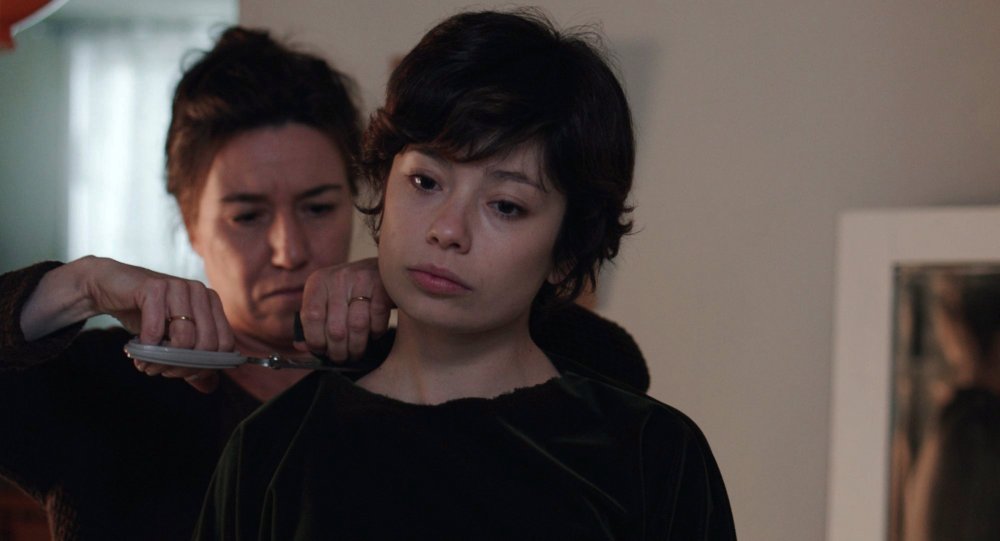
Lola Dueñas as Estrella and Anna Castillo as Leonor
Celia Rico Clavellino’s Journey to a Mother’s Room also reflects upon a young woman’s desire for a different life and the costs and challenges of emigration. Set mostly within the apartment shared by the widowed Estrella (Lola Dueñas) and her daughter Leonor (Anna Castillo), Rico’s film is an intimate exploration of a mother/daughter bond that shows bracing compassion to both parties. Discontented with her lot in small town in southern Spain, where Estrella has secured her a job in a tailor’s workshop, Leonor secretly harbours different dreams. When, against initial resistance from her mother, she departs to work as a nanny in London, the film stays with Estrella as she struggles to adjust to her beloved daughter’s absence.
Working from her own script, Rico’s quiet and humble film is mature and even-handed in its presentation of the dynamics of the central relationship, and as delicate in tone as the Vashti Bunyan song featured on its soundtrack. Nothing is stressed or over-emphasised, and, carrying many scenes alone, the expert Dueñas makes Estrella’s neediness moving and relatable rather than pitiful. The film takes its place alongside Benito Zambrano’s Solas (1999) and Almodóvar’s Volver (2006) (in which Dueñas memorably co-starred) as an insightful Spanish mother/daughter portrait, albeit one that entirely avoids the recourse to melodrama of those films.
In its characteristically understated way, Journey to a Mother’s Room also subtly comments on the UK as a hostile environment to migrants. As Leonor’s life in London proves more difficult than she’d hoped, a client of Estrella’s alludes to Brexit by expressing her concern that the girl might end up being thrown out of the UK. Still, the real resonance of this film lies not in the political sphere but rather in its exceptionally sensitive exploration of the ways in which personal loss and absence are managed.
The Chambermaid
(La Camarista) Lila Avilés, Mexico

Gabriela Cartol as Eve
A similarly quiet, observant approach informs Lila Avilés’s The Chambermaid but here the context is firmly the world of work rather than the domestic arena. Avilés’s film follows the day-to-day routines of Eve (Gabriela Cartol), a chambermaid in one of Mexico City’s swankiest hotels. A conscientious worker hoping for a promotion, Eve is an amenable individual who nonetheless keeps to herself, and Cartol’s compelling performance conveys affability while always suggesting something private held in reserve. As Eve interacts with demanding clients, with co-workers and supervisors, we see her try to maximise the opportunities that the job offers: a chance to study for an exam, a hope of claiming a red dress left behind by a guest.
Avilés’s spare, elegant compositions are particularly astute in presenting the hotel as a delimited, hierarchical space. “You can’t be here, it’s a restricted area” are practically the first words that we hear addressed to Eve. The film gives respectful, considered attention to the protagonist’s work duties – dusting, bed-making, scrubbing baths and toilets – while the emphasis on silence means that specific sounds such as a beeping intercom, a lift’s mechanical instructions or the noise of the blinds that block out a window-washer register strongly. The film complements Alfonso Cuarón’s much-praised Roma as a vivid portrait of a Mexican maid’s working life.
The Fight
Jessica Hynes, UK
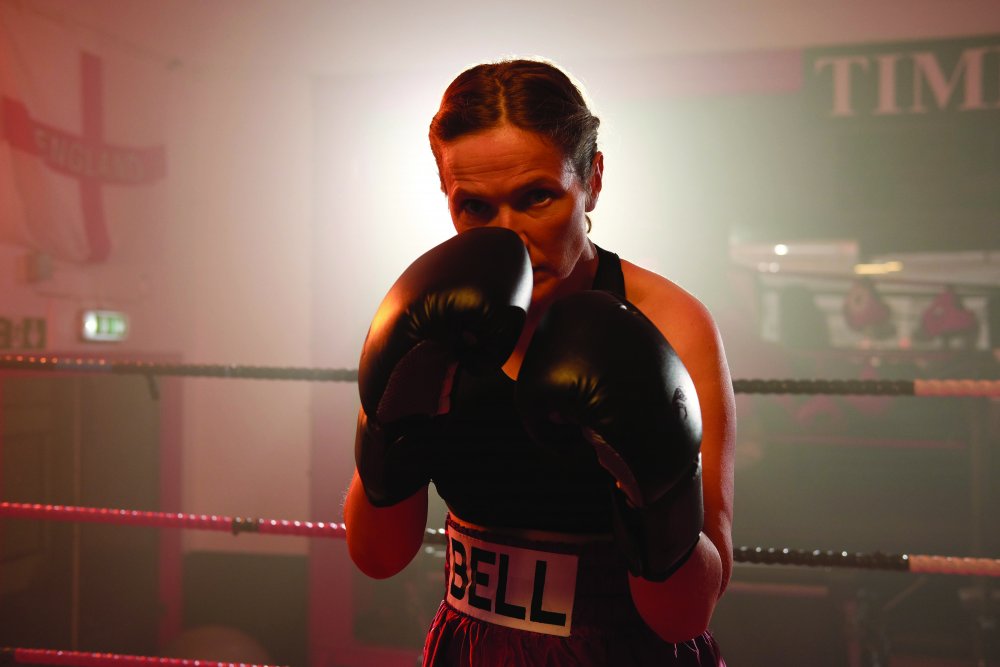
Jessica Hynes as Tina
“Layers of historical fear and anger may begin to play themselves out,” advises the meditation self-help tape voiced by Russell Brand and listened to repeatedly by Jessica Hynes’s Tina in The Fight, a film that marks actor and writer Hynes’s confident directorial debut. So it proves, in a way, as Tina, a put-upon mother of three, is forced to confront some painful memories and family situations. While her marriage to Mick (Shaun Parkes) – based equally around tender affection and jokey role-play – seems secure, her parents’ relationship appears to be unravelling. With her kids also going through some challenges, Tina turns to boxing as an outlet for the expression of her frustrations.
Presented in the festival’s Journey strand, Hynes’s Folkestone-set family drama has some problems: notably, a contrived central plot device that finds Tina’s daughter bullied by the daughter of the girl that Tina herself used to torment. Scene by scene, however, the film is engaging and well-observed, with fine supporting performances from Parkes as the likeable spouse, Sally Phillips as a sympathetic teacher and, in particular, Anita Dobson who digs deep into the distress and disappointment of her character in a memorable supporting turn as Tina’s mother. Hynes also makes good use of the location (one seldom seen on British screens). The boxing aspect is of less significance than might be expected; rather, the film’s title alludes to the everyday struggles which the protagonist is challenged to overcome.
-
Women on Film – all our coverage
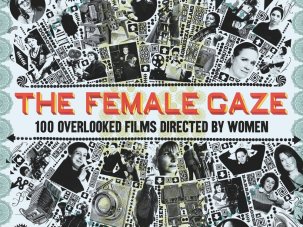
A window on our ongoing coverage of women’s cinema, from movies by or about women to reports and comment on the underrepresentation of women...
-
The Digital Edition and Archive quick link
Log in here to your digital edition and archive subscription, take a look at the packages on offer and buy a subscription.




